I want to refer to a memory location as either an array of chars or a specialized struct with two upfront char members. The reason for this is a C-API that only takes a char array, but I want to put some more information into it with my struct that I can then read out based on whether the first character is a special character (e.g. "@") or not.
struct some_struct {
char a;
char b;
void* some_ptr;
}
However here's the problem: As far as I know, char arrays are not padded. Structs however are aligned by the size of their largest member according to this topic. When I want to refer to the first two chars by either the struct or the char array, it doesn't add up:
Am I right to assume this is how the struct is aligned compared to the array (4 byte alignement)?. If so, how can I remove the unwanted front padding so that the first two chars of the struct line up with the char array? The rest of the struct can be default aligned to 4 byte boundaries, because I do not want to #pragma pack(1) the whole thing.
EDIT: Here's my intended usage:
- Create struct
some_struct reinterpret_castit toconst char *- pass it to C API as a
const char *
